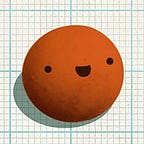Is autism a disability? Is toadflax a weed?
If anything is a disability, autism is. But is anything a disability?
The social model of disability sees disability as arising from the interaction between a person and their environment. Conventionally, we distinguish this from a person’s built-in impairments, although ‘impairment’ is arguably a problematic term — consider its literal meaning.
The main point is that a person is disabled by their environment, not anything inherent to them, so it is more accurate to talk about disabled people, rather than people with disabilities.
We can be more or less disabled, depending on what accommodations are made for us, and what expectations are placed on us. I do not consider myself to be disabled by my myopia, but in an age before glasses were widely available, my short sight could well have stopped me from performing everyday activities. Left-handed people are not disabled in most modern societies: specially adapted tools are easy to come by, and teachers now allow kids write with their left hands. In a world where everyone got around in hover-chairs anyway, having no legs would not be much of a disability. Disability is always contextual.
So I think we can safely discount the idea that there is a class of differences which are inherently disabilities. This leads some people to reject all talk of ‘disabilities’, or to reject the idea that autism in particular is a disability (after all, it comes with certain advantages). I am not sure that this is helpful, though. Even though there is nothing inherent to autism that makes it a disability, and arguably not every autistic person is disabled, I think it is useful to be able to talk about it as ‘a disability’.
To understand why, consider another class of things that it is useful to be able to talk about: weeds. ‘Weed’ is a term for plants that are growing somewhere that humans don’t want them. We could say that a ‘weed’ is just a plant that is not suited to its social environment, or vice versa: there is absolutely nothing inherent to any particular plant that makes it a weed.
All the same, ‘weed’ is a useful category, especially for gardeners. For my part, I love a lot of the plants most gardeners see as weeds, but I understand that many gardeners spend much of their time ridding their territory of inconvenient wildflowers! Toadflax might not be a weed to me, because I welcome it in my garden; I actively enjoy the biodiversity and beauty brought by stray wildflowers. Most toadflax is not so lucky as to germinate in gardens that will accommodate it, though: it is a weed, in the sense that most garden environments are hostile to it. That doesn’t mean that there’s anything wrong with it, or that it is always and forever a weed.
Similarly, it is useful to be able to talk about differences like autism, which tend to lead to interactions with environments which leave a person disabled, as ‘disabilities’ — even though the statement ‘autism is a disability’ is no more universally true than the assertion ‘toadflax is a weed’.
The alternative is to find other words to express the same thing. We can say ‘autism is an impairment’, but that really doesn’t feel like an improvement. We can say ‘autism is a difference which indirectly causes many autistic people to be disabled, in the context of a society that doesn’t accommodate their needs’, but that’s an awful lot of words.
I mostly prefer to say that most autistic people are disabled, because that does sit more easily with the social model of disability, but there are times when it makes sense to say that it is a disability. It’s a disability which often comes with significant advantages, sure, but that’s fine. It’s more misleading to suggest it’s not a disability. And toadflax, or Linaria, is a lovely genus of plants, much under-rated by gardeners.
Further reading:
- Autism as a Disability and Autism when it’s Not a Disability by me
- Labelled left-handed: Autism acceptance and the right scissors by Lizzie Cass-Maran
- A Social Model of Neurodiversity at Work by Janine Booth
